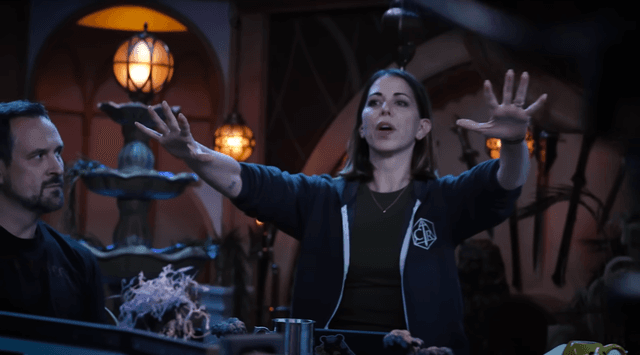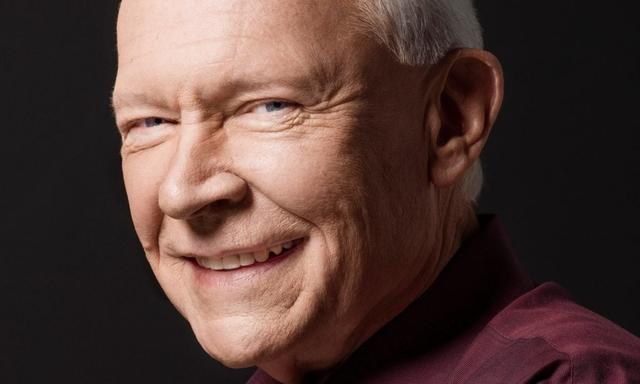If you click on a link and make a purchase we may receive a small commission. Read our editorial policy.
Doctor Who, The Acolyte, and the lessons of Lost: Let's have more mysteries on television, please
It's fun to not have all the answers (Well, within reason)

Popverse's top stories
- "And my axe!" Lord of the Rings star John Rhys Davies says there's one world leader who deserves Gimli's iconic weapon
- Wonder Man is the Andor of Marvel Studios’ modern TV series on Disney+
- Absolute Batman happened because DC Comics writer Scott Snyder got bored reading about ‘superhero fatigue’
I feel as if I’m being haunted by Lost, lately. The show — which ended 14 years ago, a fact that makes me feel even more withered and ancient than I do on an everyday basis anyway — hasn’t been in the news for any particular reason, and it’s not as if anyone has been talking about reviving it or rebooting it anytime recently (Well, not since February, anyway), and yet, it keeps popping up in conversation lately for seemingly unrelated reasons.
I’ve talked to people about their favorite characters — Sawyer seems to have fallen from favor in the past few years, appallingly — and about the finale being better than people thought in the first place; I’ve had people reference the Others and the smoke monster in entirely different conversations days apart; I’ve been rabidly enthused to about the acting prowess of Michael Emerson (to be fair, I agree); and I’ve woken up on a beach after a plane crash on to find that my dead father is somehow alive again. Okay, maybe that last one isn’t entirely true, but I was nonetheless surprised and, yes, just a little spooked when I put Judd Apatow’s This is 40 on to escape the Lost of it all, only for the show to play a surprisingly major part in the movie, for some strange reason. I am being haunted by the Island, and I didn’t even have to die and end up in some kind of weird limbo for it to happen.
The afterlife of Lost is something that underscores two important, not unrelated, facts. Firstly, that show was probably the last network television cultural phenomenon that seemingly everyone either watched, or had some kind of opinion on on a regular basis, at least in the US. (In the UK, I will forever remain comforted by the ubiquity of Love Island.) Secondly, Lost is a reminder that everyone loves a good mystery.

This is a thought that I’ve returned to repeatedly when thinking about my two current TV obsessions, namely the new season of Doctor Who and Disney+’s The Acolyte. Beyond simply enjoying the writing and performances in both shows, what’s made me return to them again and again has been the mysteries at the heart of both: who Susan Twist is in Doctor Who — far more interesting than Ruby Sunday’s unknown mother, although the two things might be linked — and what, exactly, is going on with the Master trying to train Mae to kill Jedi, respectively.
Don't misunderstand; I'm enjoying both shows on an individual episode basis, and there's a lot more to each series than their season-long puzzleboxes. It's just that... well, those extended mysteries are what transform each show from a fun watch to something I think about over and over again between episodes. They make the shows something to be consumed by in the most fun way possible.
Sure, neither show is fully pulling a Lost — by which I mean, basing its entire appeal around mystery on top of mystery, to the point where there’s very little about the show that’s definitively known — but that’s likely due to the fate to the many, many shows that attempted to be “the next Lost” only to fail entirely and leave audiences permanently confused and unenlightened in the wake of each show’s cancellation. Instead, the new generation of mystery boxes in television shows are more humble and compact: problems that can be solved within one season, with more mysteries and problems awaiting down the line if needed. Think of it as learning from the failures of the past, while still trying to key into what made Lost such a lasting phenomenon at the time, and in the years since.

It’s as simple as this: in an age where all kinds of knowledge is essentially a click away, it’s really refreshing to not have the answers right there in front of you — especially when we can be relatively reassured that there will be answers forthcoming, and in a relatively short space of time. (Again, learning from mistakes of the past, and arguably mistakes Lost made the first time around.) There’s something thrilling about being lost in a story (no pun intended, really), and feeling confident enough that there are answers around the corner, even if you can’t quite figure them out yet. More shows should take note — the more mysteries, the better television feels.
(And as someone who’s already seen part one of the two-part Doctor Who finale — no spoilers! — if other shows can pull off reveals with half the humor and self-awareness of this show, that would be great as well. Wait until Friday.)
Want to know what's coming up next in pop culture? Check out Popverse's guides to:
Follow Popverse for upcoming event coverage and news
Find out how we conduct our review by reading our review policy
Let Popverse be your tour guide through the wilderness of pop culture
Sign in and let us help you find your new favorite thing.
















Comments
Want to join the discussion? Please activate your account first.
Visit Reedpop ID if you need to resend the confirmation email.